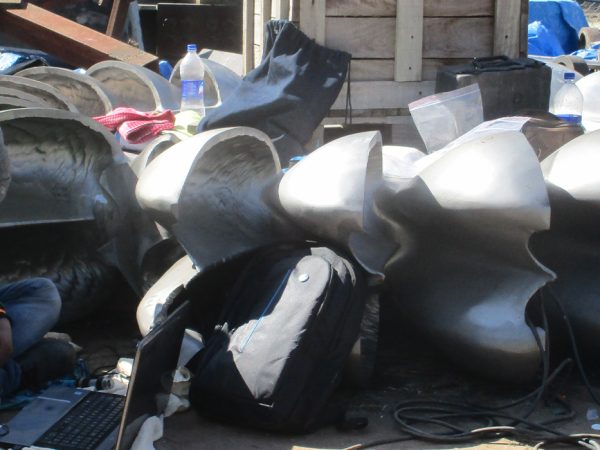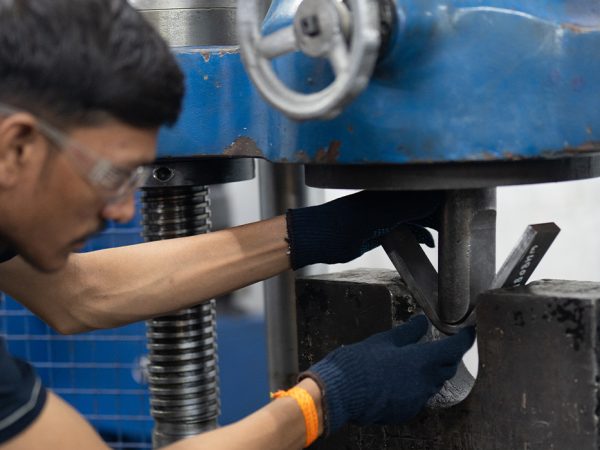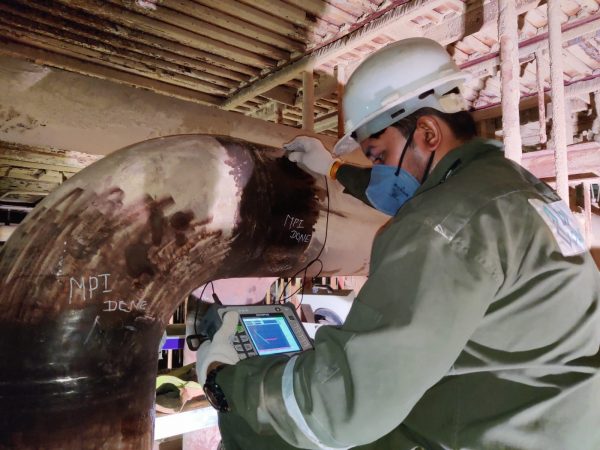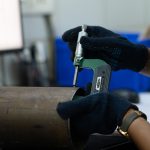Introduction
Large-scale infrastructure projects, power plants, petrochemical facilities, and manufacturing industries demand uncompromising quality and safety. Every structure, component, or system relies on the integrity of the materials used, and that’s where Material Testing becomes a pivotal factor.
Within Engineering, Procurement, and Construction (EPC) projects, the stakes are even higher. Since EPC contracts are turnkey—covering design, procurement, and execution—any compromise in material quality can result in severe financial losses, costly delays, safety hazards, or even catastrophic failures.
This blog explores what Material Testing is, why it is critical in EPC, and how industries benefit from it.
What is Material Testing?
Material Testing is the process of analyzing and evaluating materials to determine their mechanical, chemical, and physical properties. It ensures that metals, alloys, composites, and construction materials meet the required quality standards before being used in projects.
There are multiple branches of material testing, including:
- Mechanical Testing – Examines strength, ductility, and hardness.
- Chemical Testing – Determines material composition and identifies elements in metals and alloys.
- Tensile Testing – Measures a material’s resistance to pulling forces.
- Hardness Testing – Evaluates the ability of a material to withstand deformation.
- Metallurgical Testing – Analyzes microstructure to understand phases, grain size, and treatment quality.
- Corrosion Testing – Assesses how materials perform in harsh environments.
- Metallography Services – Provides microscopic analysis of structures.
- Nondestructive Testing (NDT) – Inspects material integrity without causing damage.
Each of these testing techniques is designed to ensure that materials perform reliably under specific working conditions.
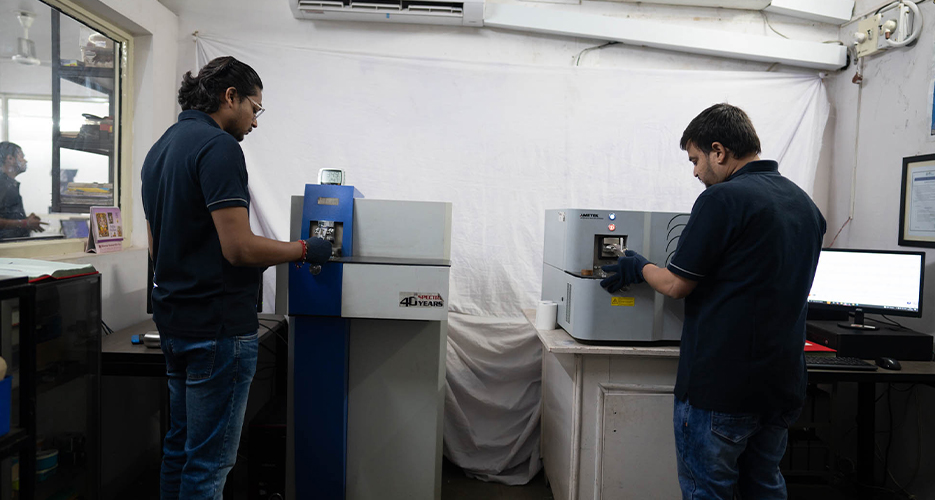
What is EPC (Engineering, Procurement, and Construction)?
Engineering, Procurement, and Construction (EPC) is a widely adopted project delivery model in which a single contractor or consortium takes full responsibility for the entire lifecycle of a project—from initial design and engineering to procurement of equipment and materials, followed by construction and commissioning. The client essentially hands over the project requirements, and the EPC contractor delivers a fully operational facility, often on a turnkey basis.
Key Phases of EPC
1. Engineering
This is the foundation stage where detailed project design is created, covering structural, civil, mechanical, electrical, and instrumentation aspects. The engineering phase ensures that every technical specification meets industry codes and client requirements.
2. Procurement
Once designs are finalized, the contractor sources raw materials, equipment, and machinery from approved vendors. Procurement must ensure quality, cost-effectiveness, and timely delivery, as delays or substandard materials can directly impact project success.
3. Construction
This phase involves site execution—assembling, fabricating, and installing all components as per the design. Construction is often the most resource-intensive stage, requiring skilled labor, heavy equipment, strict quality control, and adherence to safety standards.
Why EPC Matters
EPC contracts are popular in industries like power generation, oil & gas, chemical and petrochemical plants, fertilizers, and infrastructure development because they:
- Simplify accountability – The contractor manages all phases, reducing coordination challenges.
- Control risk – Clients transfer much of the project risk (delays, overruns, defects) to the EPC contractor.
- Ensure efficiency – With design, procurement, and construction integrated, projects move faster with fewer conflicts.
- Guarantee quality – Since the EPC contractor delivers a ready-to-operate project, strict Material Testing, Nondestructive Testing (NDT), and quality control are critical to prevent defects.
EPC and Material Testing
In EPC projects, time, cost, and quality are deeply interconnected. A single weak link, such as a welding defect, substandard alloy, or material inconsistency, can lead to safety hazards, costly delays, and financial losses. That’s why Material Testing—including Tensile Testing, Metallurgical Testing, Hardness Testing, and Corrosion Testing—is central to EPC. It ensures that every component used in construction meets international standards and can perform reliably throughout the project’s lifecycle.
Why is Material Testing Important in EPC?
In EPC projects, every weld, pipe, beam, or alloy component must meet international standards. Here’s why Material Testing is indispensable:
1. Ensures Quality Compliance
Testing verifies that materials conform to IS, ASTM, ASME, DIN, EN, API, and AWS standards.
2. Prevents Failures
By identifying defects early through Nondestructive Testing (NDT) or Metallurgical Testing, companies prevent catastrophic failures.
3. Saves Cost and Time
Detecting weaknesses during procurement or fabrication prevents costly rework and project delays.
4. Boosts Safety
High-quality materials minimize risks in power plants, oil refineries, and large-scale civil structures.
5. Supports Sustainability
Corrosion Testing and Metallography Services help extend material life, reducing waste and ensuring environmental compliance.
Benefits of Material Testing in EPC
Reliability
Through Mechanical Testing, materials are evaluated for their ability to endure heavy stress, pressure, and load conditions. This ensures that critical components in EPC projects remain structurally sound during operation.
Performance Guarantee
Tensile Testing measures a material’s strength and ductility, confirming that pipelines, beams, and structural steel can perform as expected. This provides assurance that components will not fail under tension or stretching forces.
Durability
By conducting Hardness Testing and Corrosion Testing, engineers can predict how materials will behave in harsh environments. This helps ensure long-term durability and resistance against wear, abrasion, or corrosive elements.
Process Control
Metallurgical Testing verifies proper heat treatment, weld quality, and phase distribution in metals. It ensures the manufacturing process is consistent and aligned with international quality standards.
Risk Mitigation
With Nondestructive Testing (NDT), cracks, porosity, and other hidden defects are detected before installation. This reduces risks of sudden failures, costly downtime, and potential safety hazards in large-scale projects.
Industries We Serve
At TCR Advanced, Material Testing services extend across multiple industries:
- Power Generation Industry – Ensuring turbines, boilers, and pipelines meet safety standards.
- Fertilizer Industry – Preventing corrosion and ensuring material strength under chemical exposure.
- Chemical and Petrochemical Industry – Validating alloys and piping systems for extreme conditions.
- Oil & Gas – Securing pipelines, drilling equipment, and refinery structures.
- Insurance Sector – Providing failure investigation reports to support claims.
- Pharmaceutical Industry – Verifying material reliability for critical manufacturing processes.
- Fabrication Industry – Testing welds and structures for compliance.
- Manufacturing Industry – Ensuring product safety and performance.
- Automobile Industry – Evaluating strength, hardness, and fatigue life of components.
The TCR Advanced Client Advantage
At TCR Advanced, clients benefit from a unique blend of deep industry expertise, strategic consulting, and technical capabilities that ensure long-term value creation. With teams comprising industry veterans and former leaders from large corporations, TCR offers pragmatic, solution-driven services that accelerate problem resolution. From on-site labs, DT & NDT testing, root cause analysis, and material characterization to electrochemical and immersion testing, TCR provides comprehensive support for quality assurance and performance enhancement across industries.
Trusted by Industry Leaders
Recognized as a leading service provider, TCR has partnered with prestigious national and international organizations such as GMR, Reliance Infra, Larsen & Toubro, Technip, Shapoorji Pallonji, and Baker Hughes. Its expertise spans corrosion solutions, material testing and qualification, welding procedures, and team training, making it a trusted name in EPC and industrial projects. TCR also holds the distinction of delivering Material Testing and NDT Inspection for the iconic Statue of Unity and conducting specialized services such as failure investigations and helium leak testing for Reliance in Jamnagar. With over 250+ NDT inspections, 1500+ in-situ metallography replicas, and 1000+ material testing projects, TCR continues to set benchmarks in reliability and excellence.
FAQs
1. What is EPC in construction projects?
EPC stands for Engineering, Procurement, and Construction, a project delivery model where a single contractor manages design, material sourcing, and construction, delivering a complete facility on a turnkey basis.
2. Why is Material Testing important in EPC projects?
Material Testing ensures that every component used in EPC projects meets international standards. This prevents failures, reduces delays, and guarantees safety in critical sectors like power, oil & gas, and infrastructure.
3. How does Material Testing reduce risks in EPC contracts?
By identifying defects early through Nondestructive Testing (NDT), Tensile Testing, and Metallurgical Testing, EPC contractors minimize the risk of cost overruns, project delays, and structural failures.
4. Which industries commonly use EPC contracts?
EPC is widely used in power plants, oil & gas refineries, petrochemical facilities, fertilizer plants, large-scale infrastructure, and fabrication projects.
5. What role does quality control play in EPC?
Quality control in EPC relies heavily on Mechanical Testing, Hardness Testing, and Corrosion Testing to ensure materials meet required specifications and construction standards.
6. How do EPC projects benefit from Nondestructive Testing (NDT)?
NDT allows EPC contractors to detect cracks, porosity, and defects in materials without damaging them, ensuring reliability while avoiding costly rework.
7. Can Material Testing improve cost efficiency in EPC projects?
Yes. By validating materials before use, testing reduces rework, prevents downtime, and extends component life, helping EPC companies complete projects within budget and schedule.
Conclusion
In EPC projects, where budgets are tight, deadlines strict, and safety critical, Material Testing is not optional—it’s essential. From Tensile Testing for strength, Metallurgical Testing for microstructure analysis, and Nondestructive Testing (NDT) for flaw detection, to Corrosion Testing and Metallography Services, every test ensures the project’s reliability.
At TCR Advanced, our NABL-accredited laboratories and expert teams deliver world-class Material Testing services, supporting industries like Oil & Gas, Power, Manufacturing, and more. With our comprehensive capabilities, we help EPC companies achieve success with confidence.

